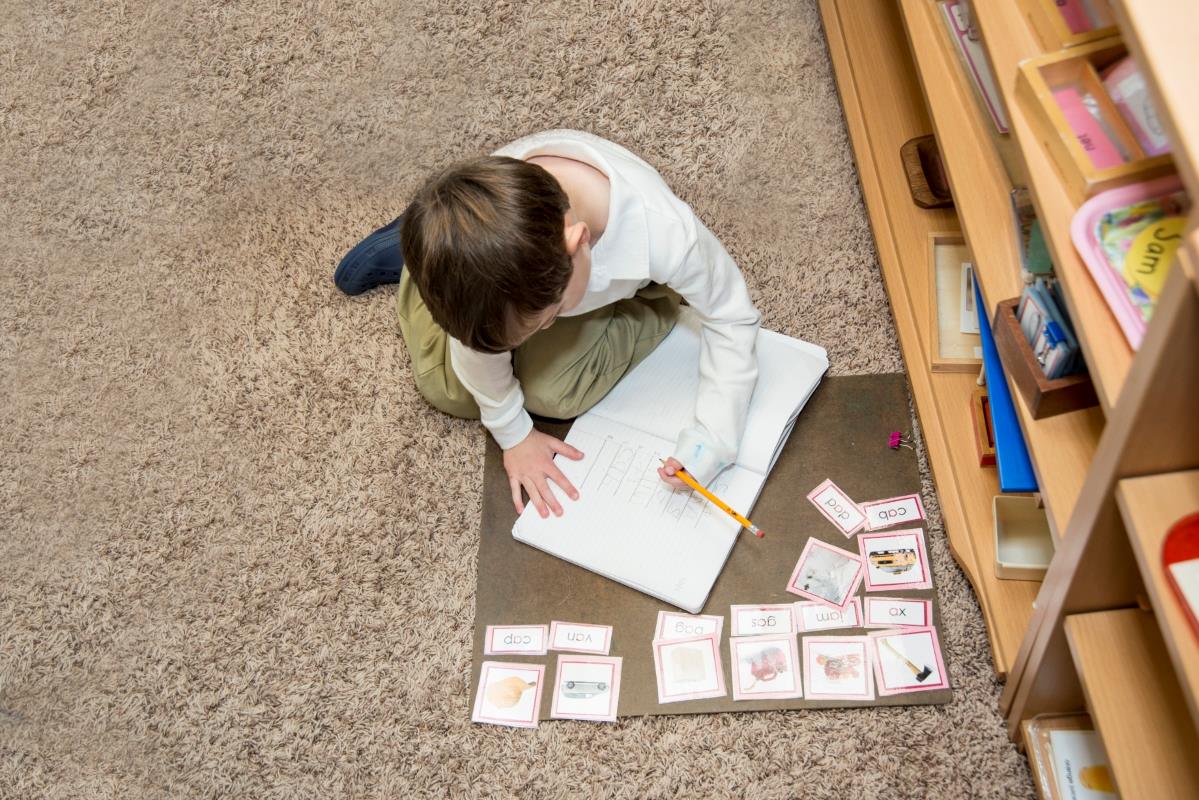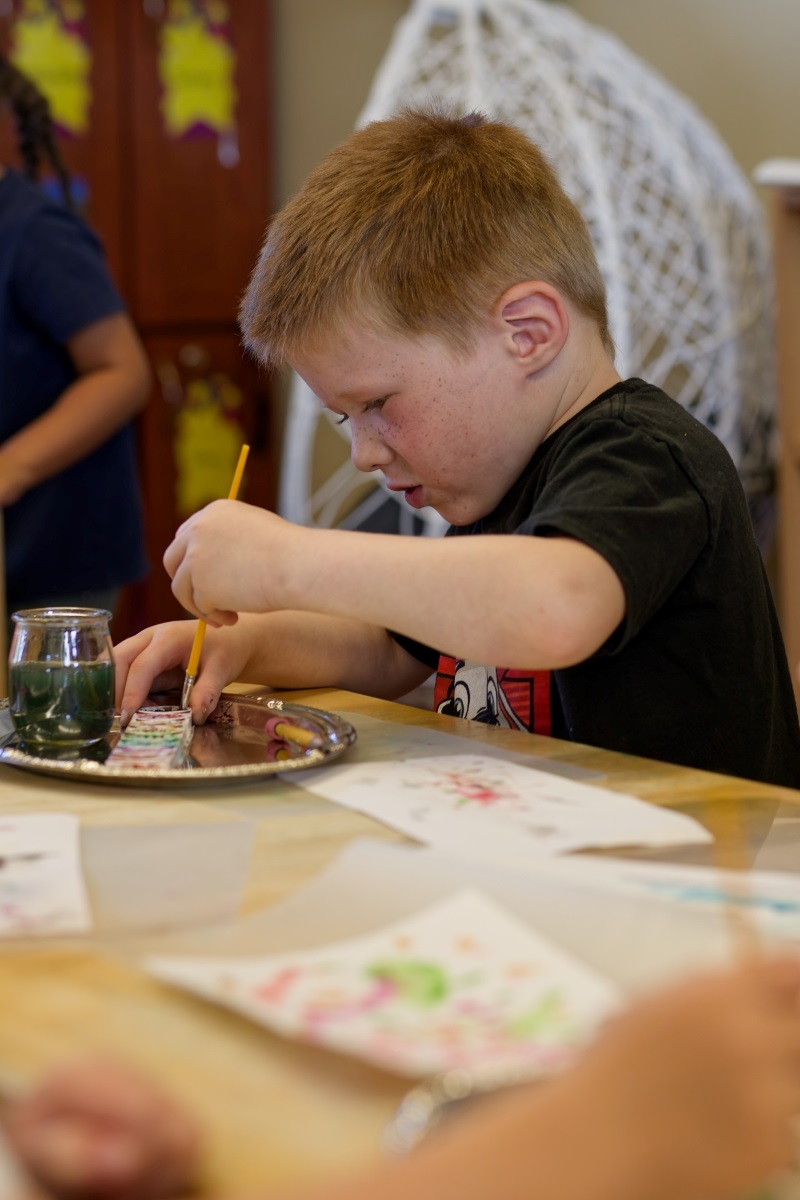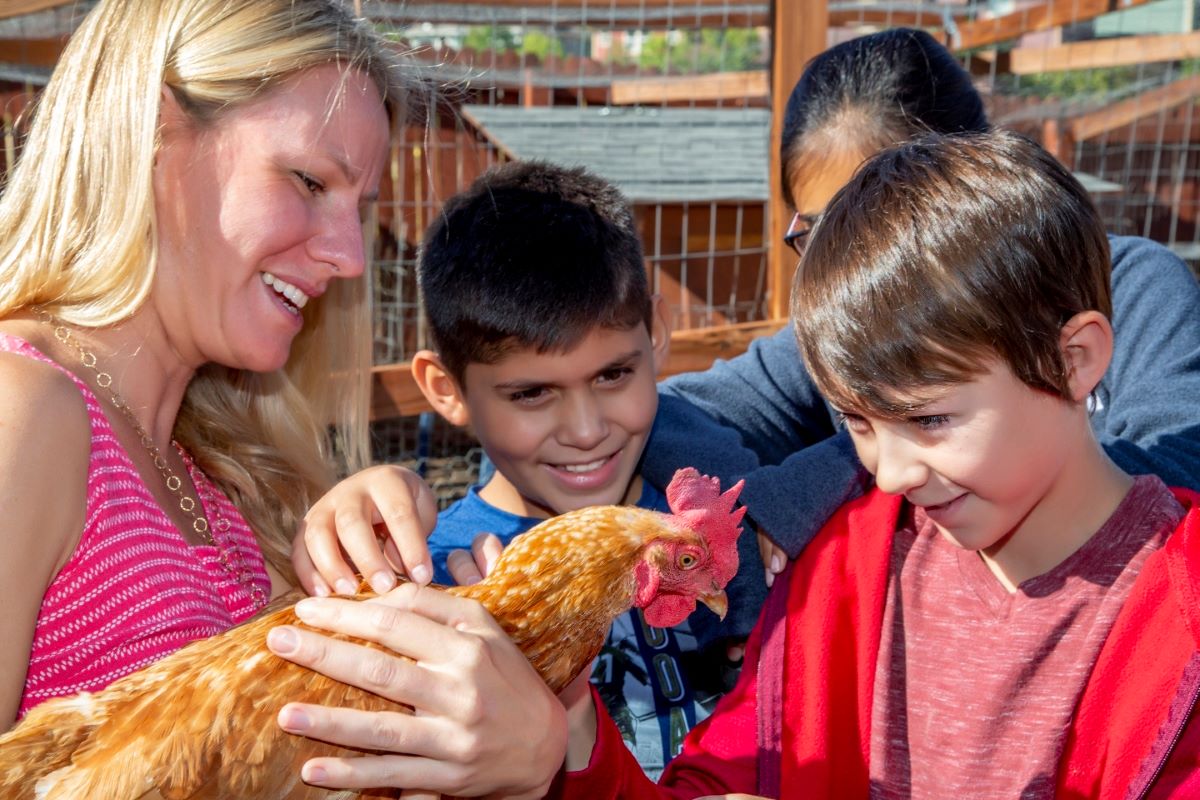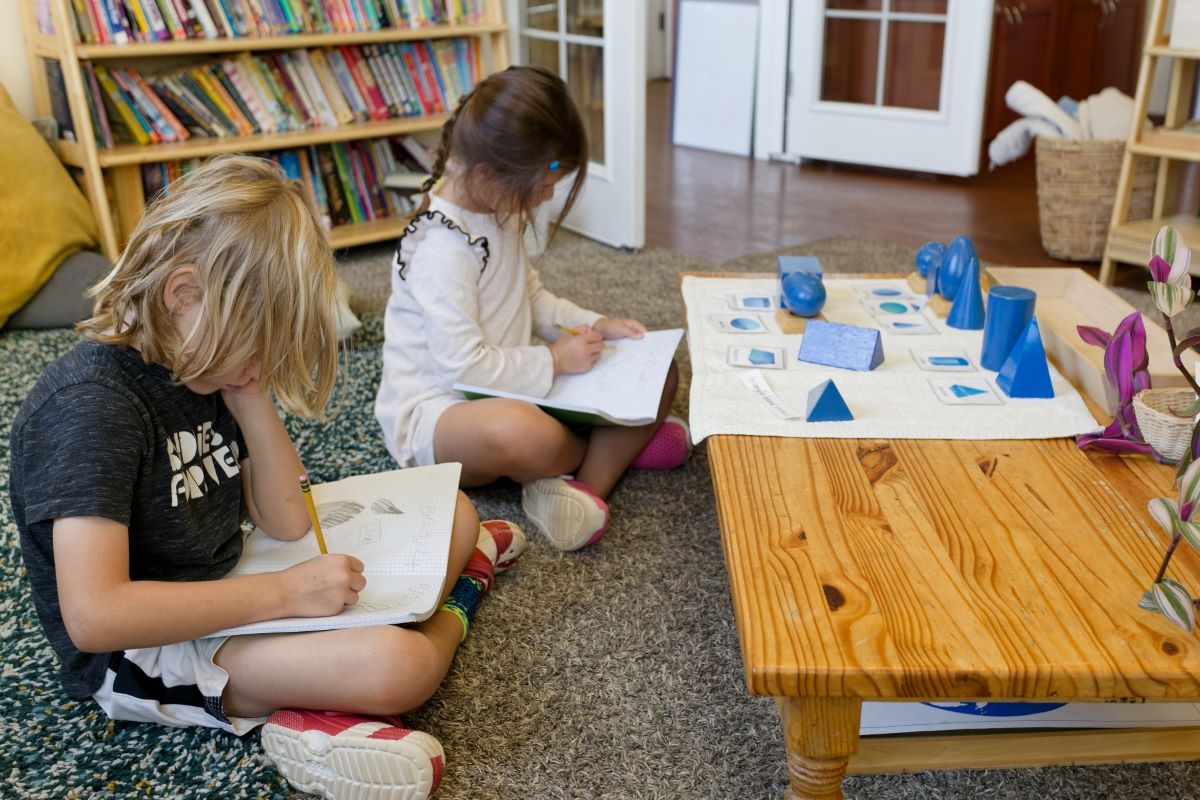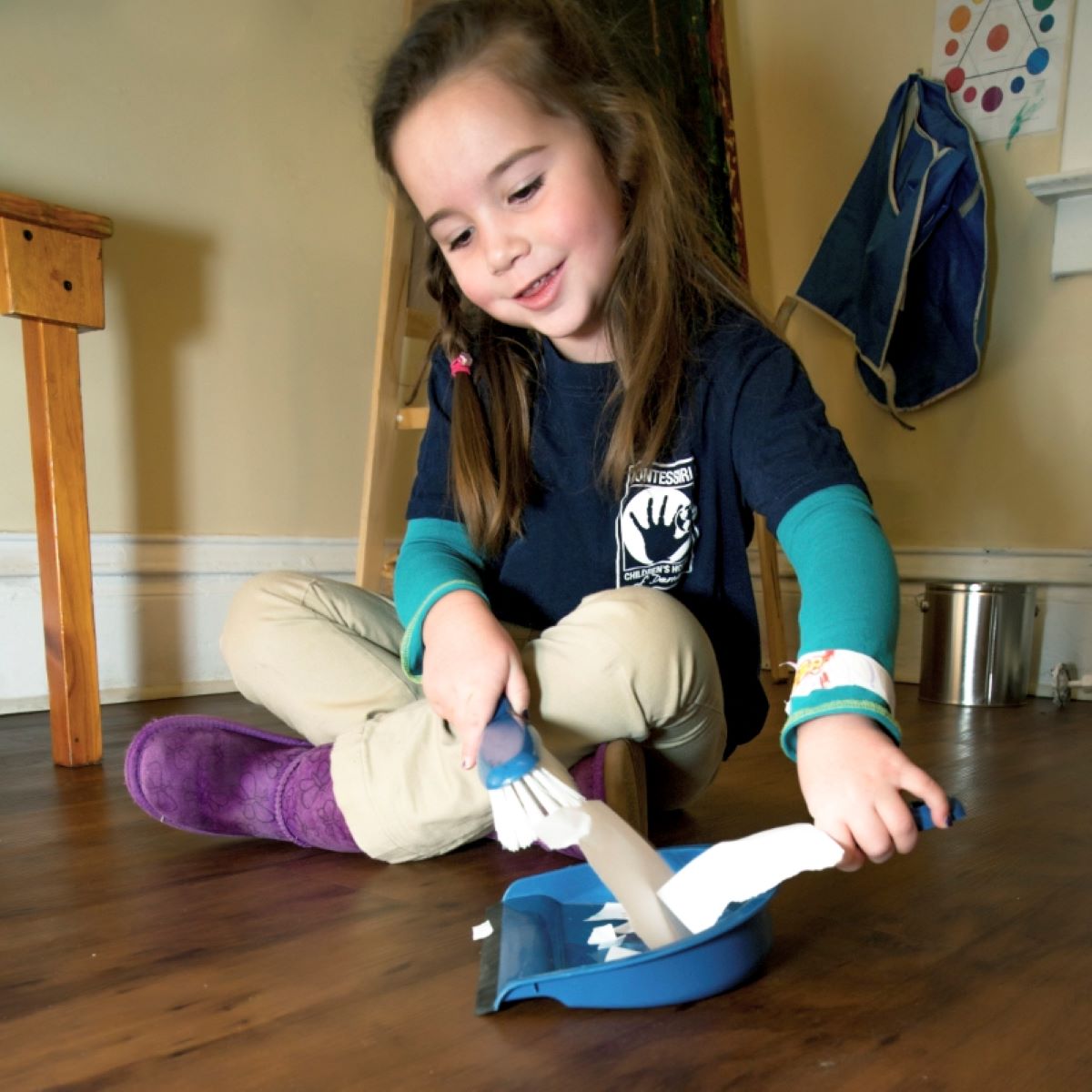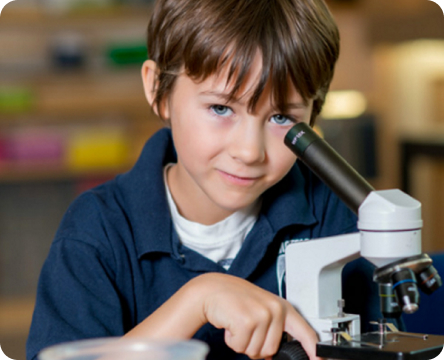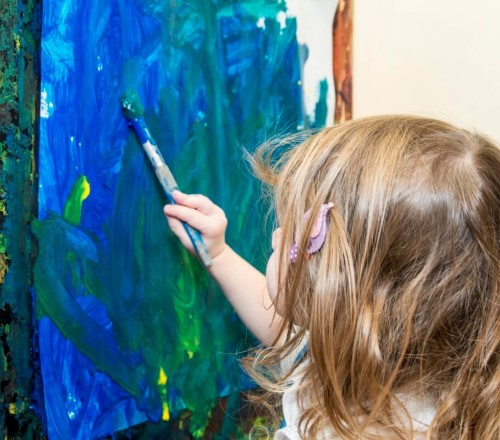Montessori Lower Elementary Program | Denver
Our Montessori lower elementary program celebrates and encourages students as they embark on a new academic journey, transitioning from concrete concepts to abstract thinking while broadening their worldview and emerging as critical thinkers. We follow each child's lead in their learning journey, keeping elementary students consistently engaged and excited about their educational progress.
Montessori Lower Elementary Program Enrollment
Ages Served
6-9 years old (Grades 1-3)
Schedule Options
Full-day program with before and aftercare available
Hours
8:30 AM - 3:30 PM with extended care from 7:30 AM - 6:00 PM
Is Potty Training Required?
Yes, children must be fully potty trained
Curriculum Focus
Cosmic Education integrating language arts, mathematics, cultural studies, and science through interconnected great lessons
Daily Routine
3-hour uninterrupted work cycle with individual and group lessons, followed by afternoon enrichment activities
Classroom Experience
Mixed-age elementary classroom fostering independence, collaboration, and critical thinking skills
About Our Montessori Lower Elementary Program
Our lower elementary classroom provides a carefully prepared learning environment where children begin their transition from concrete to abstract thinking. Elementary students explore the interconnectedness of all subjects through our Cosmic Education curriculum, which starts with the formation of the universe and works inward to help younger children understand their place in the world. This elementary program emphasizes collaborative work while supporting each student's individual learning path at their own pace.
From 6 to 9: Development Support for Every Stage
During this critical period, elementary students develop their reasoning minds through abstraction, critical thinking, and problem-solving activities. Children learn to work in small groups and participate in group lessons that encourage peer collaboration and moral development. Our elementary curriculum meets younger children where their imagination and creativity naturally flourish, while older children take on leadership roles within the inclusive community. The learning environment supports students as they explore cultural studies, language arts, and scientific concepts that connect to their daily lives.

Montessori Lower Elementary Program Enrollment and Registration
Ready to give your child the gift of a Montessori education? Our elementary program welcomes families seeking an educational approach that honors each child's natural development while fostering independence and a love of learning. Contact us to learn about enrollment opportunities for our lower elementary program.
Why Families Trust Montessori Children's House of Denver
Families choose our Montessori school because we create an inclusive community where elementary students thrive academically and socially. Our experienced teachers guide children through carefully designed lessons that spark curiosity and develop understanding across all subject areas. We invite you to join us for our regular open house events to see our elementary classroom in action and meet our dedicated faculty.
A Private Montessori School Serving Denver
Discover how our Montessori approach can make a lasting difference in your child's life. Contact us today to learn more, schedule a tour, and become part of our vibrant school community.
Other Montessori Programs Available at Our Locations
Our toddler program provides a nurturing first school experience where younger children develop independence and confidence in a carefully prepared environment designed just for them.
The primary program serves children during their most absorbent years, building foundational skills in practical life, sensorial exploration, language, and mathematics through hands-on Montessori materials.
Our upper elementary program continues the cosmic education approach with middle school preparation, advanced projects, and increased responsibility as students prepare for their next academic adventure.
Our specialized digital citizenship program teaches elementary students responsible technology use and online safety skills essential for today's world.
Join us during summer break for engaging summer camp experiences that continue the Montessori approach through outdoor exploration, creative projects, and fun activities.
Other Montessori Programs Available at Our Locations
Our toddler program provides a nurturing first school experience where younger children develop independence and confidence in a carefully prepared environment designed just for them.
The primary program serves children during their most absorbent years, building foundational skills in practical life, sensorial exploration, language, and mathematics through hands-on Montessori materials.
Our upper elementary program continues the cosmic education approach with middle school preparation, advanced projects, and increased responsibility as students prepare for their next academic adventure.
Our specialized digital citizenship program teaches elementary students responsible technology use and online safety skills essential for today's world.
Join us during summer break for engaging summer camp experiences that continue the Montessori approach through outdoor exploration, creative projects, and fun activities.
Parent Reviews
Meredith B.
January 21, 2025
Communicative and caring teachers and leadership and small classroom/school size contributing to true community feel.
Stefanie S.
June 18, 2024
I love that the staff creates such a safe space for both the kids and parents to be themselves. They are all so welcoming and open and extremely knowledgeable in childhood education. They have helped me and my family overcomes some of the hurdles that toddlerhood brings and develop positive approaches to difficult situations. We love MCHD!
FAQs
Our elementary program follows the cosmic education approach, showing children how all subjects connect through great lessons that spark imagination and curiosity. Elementary students work in mixed-age classrooms, learning at their own pace with hands-on Montessori materials that make abstract concepts concrete and understandable.
Schedule a Tour!
Discover how our Montessori educational approach can make a lasting difference in your child's life. Contact us today to learn more, schedule a tour, and become part of our vibrant school community serving elementary students throughout the Denver area.

